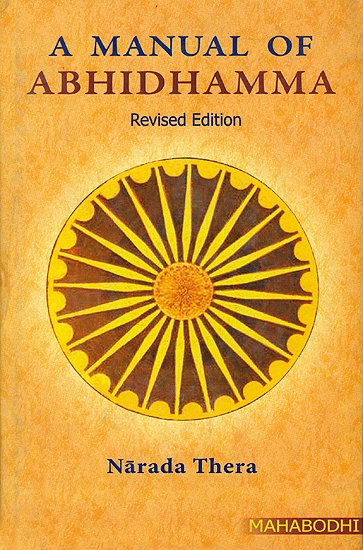Abhidhamma in Daily Life (by Ashin Janakabhivamsa)
by Ashin Janakabhivamsa | 66,666 words
English translation of "Abhidhamma in Daily Life" by Professor Ko Lay. Revised by Sayadaw U Silananda, International Theravada Buddhist Missionary University, Yangon, 1999...
Conclusion
The Reader’s Duty
I have done my part in writing this “Abhidhamma In Daily Life” dealing with Dhamma aspects, which the general reader should know, in their everyday relationship. Having gained useful knowledge from this treatise, it is the duty of the general reader to put the knowledge so gained into practical use by developing mindfulness, self-restraint and earnest endeavor.
Knowledge and Practice
Knowledge is not practice. Mere knowledge is useless. Books can offer knowledge but cannot practice for the reader. There are many who are literate, who have gathered much useful knowledge on the practice of Dhamma but very few uses, such knowledge to one’s advantage. In the midst of majority of such people in the world, chances are slim to foster good, righteous mind.
For example, many deeds of Dana are performed nowadays not with view of accumulate parami merits but to keep in line with social trend of showing off, vaunting their success and wealth for all to see; people no longer follow the path of parami laid down by noble, virtuous ones. The social climbers, in deed, know their Dana will bear no good fruit or very little, but because of their strong craving for popular acclamation, social acceptance and recognition, they sink to the level of doing deeds that the ignorant people do even though they know they should not.
The Wily Tiger
Here is a story from Hitopadesa - to illustrate my point - a wily tiger was too old to catch his prey. One day he kept calling loudly, “Oh travelers! Come and take this gold bangle.” A traveler heard this call, so he approached the tiger and asked, “Where is the gold bangle?”
The old wily tiger showed the gold bangle in his paws. The traveler said he dared not come near him who used to be a man-eater.. Then the wily old tiger preached him a sermon as follows, "In my younger days I kill and eat human beings because I was not fortunate enough to listen to the Dhamma. As I grow older and lost my wife and children. I really felt samvega. At the time I happened to meet with a noble person who taught me to live a virtuous life making deeds of Dana. Since then I have been living a strictly righteous life. You have nothing to be afraid of. I am harmless. See, I don't even have claws and fangs. I have resolved to give this gold bangle to someone as charity, and you are the lucky one. Go bathe in the lake and come accept my gift.
Believing these persuasive words, the traveler did what he was told. When he stepped into the lake he sank into the swamp. Saying that he would help him, the tiger came and devoured the traveler.
This story from Hitopadesa gives us a moral lesson that mere knowledge is useless without morality. Educated and intelligent persons without morality endowed with cunning, charm and cleverness at deceiving can be more dangerous than the ignorant, because they possess the knowledge to succumb wicked deeds. I would like to advise the readers not to be contended with mere knowledge, but to practice what they have digested so that they may become really virtuous persons. Here I conclude wishing you all again a long life.
Versified epilogue rendered in simple prose:
To bring this treatise to a close, here are some pertinent remarks in brief: In this modern age, although there are Bhikkhus as well as laity with resolution to strive for attainment of Nibbána, unless the mind is intrinsically pure, they will still be far away from the Sublime State they long for.
Therefore, beginning with myself, all my companions, close associates and generations to come, who wish to reach the blissful peace of Nibbána realized by our Noble Predecessors, should study this treatise of Abhidhamma In Daily Life carefully, precisely, meticulously, and strive with full diligence accordingly so as to attain the supreme height, to become the great conqueror, the glorious victor.
